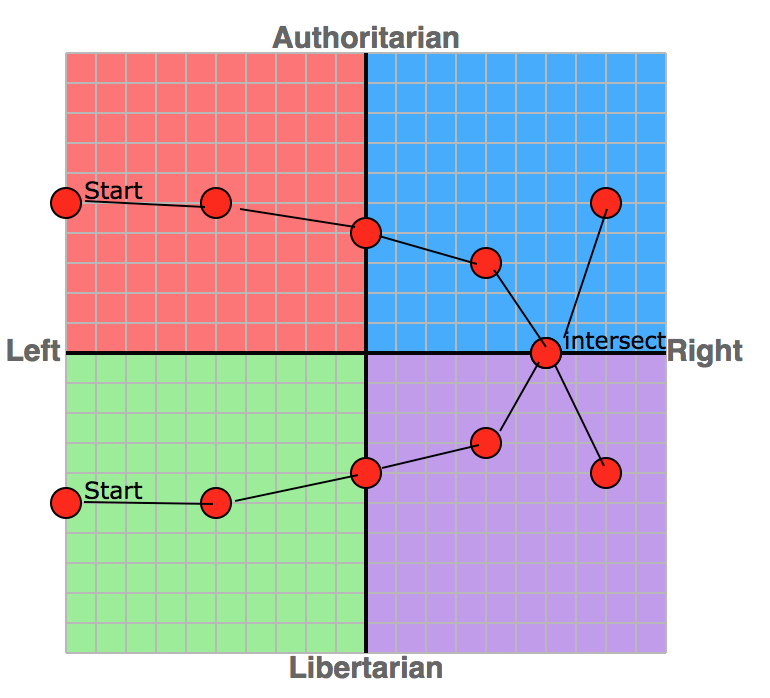The red pill curve (political theory) 1#

Before I explain this theory too you, it is important that you know what the political compass is. It was created as a test at politicalcompass.org which asks you a set of questions relating to social values and economic values. after you complete the test which should take no longer than 10-15 minutes it places you in one of four quadrants. There is the economic and the social axis which corresponds to the test results. and approximate placement of ideologies for each quadrant is:
Auth-left: far left communism closer to middle national socialism
Lib-left: leftism and postmodernism
Auth-right: conservatism and religion
Lib-right: libertarianism and neoliberalism
This is a political theory relating to the political compass test and the documentary called "The Red Pill". It is a theory that any one individual on the left of the spectrum belonging to the social justice category, by trial and error through discussion will always become conservative or libertarian in the end. This takes time to work as it is all dependant on how much of a radical leftist the person is. Generally speaking, an intersectional leftist will take longer to "red pill" than a more of a typical "civil rights" campaigner. The point where the two lines intersect is usually where most leftists who have been "redpilled" stop and believe in this hybrid ideology called "conservitarianism" which is a cross between conservatism and libertarianism. the point where the lines split is where the few who become extremists are. The ones who become more authoritarian become neo-conservatives who are incredibly hawkish whereas the ones who become more libertarian become more of an "anarcho-capitalist" type which is more abolish the government and let the companies set the rules.
The reason for why this phenomenon happens is that the common arguments presented by leftists are never backed by any real or credible statistics such as "1/5 of women will be sexually assaulted" or "taxing the '1%' will make poor people richer". When they are challenged with their arguments they cannot ever stand their ground especially against people they disagree with. When this happens they tend to either re-affirm their beliefs or they independently look at the other side. They will first start to question their beliefs as I did when I changed then, they tend to lose their interest in collectivism and group identity before crossing over the economic line. After they become experts at debating the other side because they can now see the flaws in their arguments and over take them.